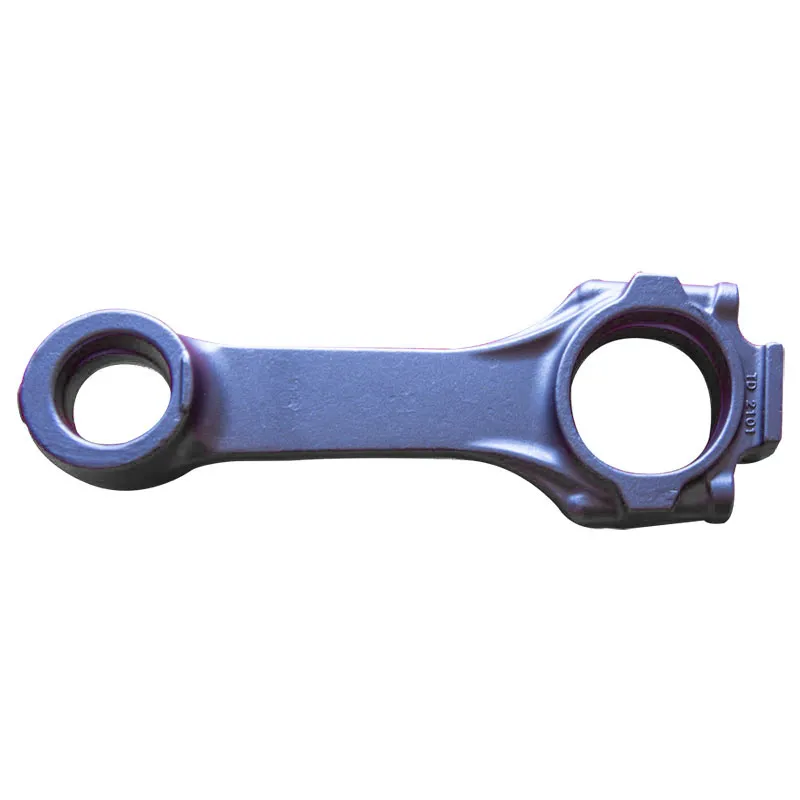Common Engine Parts Issues and How to Address Them
2024-09-10
Automotive engines are intricate systems made up of numerous parts that work in unison to ensure efficient performance. However, over time, even the best-maintained engines can experience issues due to wear and tear or malfunctioning components. Identifying and addressing problems with engine parts early on can save you from expensive repairs down the line.

In this blog, we’ll discuss some of the most common issues related to engine parts and how to address them to keep your vehicle running smoothly.
1. Worn Piston Rings
Problem:
Piston rings are critical for maintaining compression and preventing oil from leaking into the combustion chamber. Over time, these rings can wear out, leading to reduced engine compression, increased oil consumption, and smoke from the exhaust.
Solution:
If you notice these symptoms, it's crucial to have the piston rings inspected and replaced if necessary. Worn piston rings may also lead to engine misfires and reduced performance, so addressing the issue promptly is important.
2. Valve Timing Issues
Problem:
Valve timing is controlled by the camshaft and crankshaft through the timing belt or chain. If the timing belt slips or breaks, it can cause the engine’s valves to open or close at the wrong time, leading to poor engine performance or catastrophic damage.
Solution:
Regularly check the timing belt or chain for signs of wear and replace it according to the manufacturer’s recommendations. If the timing belt fails, it’s essential to replace it immediately and inspect the engine for any further damage.
3. Clogged Fuel Injectors
Problem:
Fuel injectors can become clogged due to impurities in the fuel or carbon buildup, which can result in rough idling, poor acceleration, or decreased fuel efficiency.
Solution:
Using fuel injector cleaners or having your injectors professionally cleaned can solve this issue. In severe cases, the injectors may need to be replaced. Routine maintenance, such as using high-quality fuel and regular cleaning, can help prevent clogging.
4. Overheating Due to Radiator Issues
Problem:
An engine’s cooling system, particularly the radiator, can become compromised by leaks, corrosion, or blockages. When the radiator isn’t functioning properly, it can cause the engine to overheat, leading to serious engine damage.
Solution:
Regularly check the coolant levels and inspect the radiator for signs of leaks or corrosion. Flushing the radiator and refilling it with fresh coolant can help prevent overheating issues. If the radiator is damaged, it may need to be repaired or replaced.
5. Faulty Spark Plugs
Problem:
In gasoline engines, spark plugs are responsible for igniting the air-fuel mixture inside the cylinder. Worn or faulty spark plugs can cause misfires, poor fuel economy, and rough idling.
Solution:
Spark plugs should be inspected and replaced according to the manufacturer’s schedule. In some cases, replacing just one or two plugs can resolve the issue, but it’s often best to replace all of them at once to ensure consistent performance.
6. Oil Pump Failure
Problem:
The oil pump circulates engine oil to lubricate moving parts. A failing oil pump can result in low oil pressure, leading to increased friction, overheating, and eventual engine failure.
Solution:
If you notice a drop in oil pressure or hear knocking sounds from the engine, have the oil pump inspected immediately. In many cases, replacing the oil pump can prevent further engine damage. Regular oil changes and using high-quality oil can also help extend the life of the oil pump.
7. Cracked Cylinder Head or Block
Problem:
Extreme temperature fluctuations, overheating, or mechanical stress can lead to cracks in the cylinder head or engine block. This can result in coolant leaks, loss of compression, and engine misfires.
Solution:
A cracked cylinder head or block is a serious issue that often requires professional repair or replacement. Preventative measures include maintaining proper coolant levels and ensuring the engine doesn’t overheat.
Conclusion
Maintaining your vehicle’s engine requires attention to its key components and addressing issues as soon as they arise. By understanding common engine part problems—such as worn piston rings, faulty spark plugs, and timing belt failures—you can take preventive measures and ensure the longevity of your vehicle’s engine. Regular maintenance, timely repairs, and using high-quality parts can save you from costly repairs and ensure your engine runs smoothly for years to come.


